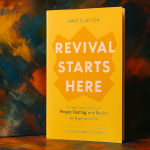While evangelicals debate the biblical imperative to receive refugees from Syria, the logic of admitting people fleeing the war requires a strong administrative state. That necessity makes me wonder if appeals to the Bible are legitimate.
World Relief has launched a campaign — We Welcome Refugees — to motive evangelicals and other Americans to back proposals for taking in more Syrian refugees. On the one hand, they appeal to the Bible:
The Bible has a lot to say about how God’s people should respond to refugees and other migrants. In fact the Hebrew word ger—translated into English variously as foreigner, sojourner, stranger, or immigrant—appears 92 times just in the Old Testament, often in the context of God commanding his people to love and welcome those who came as foreigners into their land. Many of the heroes of our Christian faith—David, Elijah, even Jesus himself—had to flee persecution from tyrannical governments seeking to do them harm. The New Testament repeatedly commands us to “practice hospitality” (Rom. 12:13), which literally means to practice loving strangers—with the hint that, by doing so, we may be welcoming angels (Heb. 13:2).
Welcoming refugees is a tangible way to love our neighbors, part of Jesus’ Great Commandment (Luke 10:27) and to practice the Golden Rule (Luke 6:31), treating others as each of us would hope to be treated if we were to find ourselves in a desperate situation, forced to flee to a foreign land.
Welcoming refugees also presents an opportunity to stand with our brothers and sisters in Christ who are persecuted for their faith—which includes a significant number of refugees from various parts of the world—as well as to witness to the love and welcome of Jesus to those of other religious traditions. Since we believe that each person is made in the Image of God, we seek to serve and welcome all those fleeing persecution, regardless of their religious or cultural background.
In which case, every Christian and church should be lining up to sponsor an asylum seeker or preparing a place for refugees here in the United States.
But, of course, the lives of citizens do not operate the same way that the lives of church members do. In fact, even the most welcoming of Christians need the government to do the heavy lifting of determining which refugees are safe, and which should be denied, a determination that does not exactly follow the commands of Scripture. So, We Welcome Refugees also welcomes the bureaucracy (to a point) of the federal government and related agencies:
The U.S. can technically accept refugees through referrals from its consulates or in specially established cases from NGOs, but in practice the vast majority are referred by UNCHR. Most of these refugees are either living in refugee camps of in urban contexts outside of camps, and all will be coming from “countries of first asylum” in the Middle East–primarily Lebanon, Jordan, and Turkey, possibly also Egypt and Iraq. If a refugee reaches Europe, they would then file an asylum claim there, which would invalidate any claim to need the protection of the U.S. (if rejected by Europe, the U.S. could consider the case, but would be unlikely to make a different finding, as their standards are similar to European countries under the UN Convention on Refugees).
While the vetting and review process occurs, those refugees are living in that country of first asylum, whether in a camp or in a city and cannot be considered for entry to the U.S. until their case is finalized and approved.
This process involves the U.S. Departments of State, Homeland Security and Defense as well as the FBI and the National Counterterrorism Center. The process generally requires at least 18 months and includes in-person interviews, biometric background checks, and interviews with third-persons who may have information about the individual being considered for resettlement to the U.S. Only a fraction of one percent of the world’s refugees are admitted for resettlement to the U.S. in any given year, so priority is given to those who are deemed to be most vulnerable, including a majority who are women or children. The vetting process for those being considered for refugee status is actually more stringent than that of any other category of visitor or immigrant to the United States. The U.S. refugee resettlement system continues to be a lifeline to desperate individuals fleeing terrorism.
In other words, the church needs the state to perform the sorts of inspections that churches themselves cannot do. Churches can’t vet refugees not only because they lack the resources but also the competency. Governments are filled with lawyers. Churches decline when they are.
In which case, why appeal to the Bible if you want government to take in more refugees? Lots of what We Welcome Refugees wants is to eliminate additional legislative initiatives that would increase the red tape for refugees. Their arguments against such legislation are plausible and should be considered. What is less clear is why the Bible functions in any kind of meaningful way in this argument for letting in more refugees. It’s an administrative and security matter, not an indication of a nation or people’s holiness or sanctification.
















